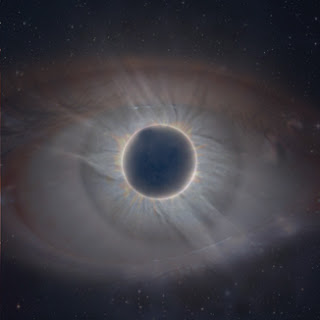'Going Dark' review or 'Get me some freaking light!'
'Going Dark', by Hattie Naylor, in collaboration with Sound & Fury
Young Vic Theatre, Thursday 8th March 2012
Culture Wars
You'lll be hard pushed to find a company more aware of its audience – and more in tune with the spectators' senses - than Sound and Fury. Indeed, the audience's stumbling entry into a pitch black studio, is effectively the first scene of 'Going Dark'. This is a play about going blind and, as we gingerly creep towards our seats, we represent the beginning of Max's journey, as he attempts to navigate a strange and dark new world.
It is a thoughtful way to create an immediately empathetic audience. And yet, as contradictory as this might sound, this clever opening also creates a distance between the audience and the play. The opening 'scene', and overall production, is so concerned with 'our' experience that it sometimes neglects the protagonist and his own, painful journey. There's no doubt this audience-focused approach allows for some overwhelmingly effective moments - particularly when one longs, with such a fierce terror, for the darkness to end. However, this focus on the spectators' senses also creates a slightly selfish and adrift audience. As much I appreciated this production, I also felt strangely detached from proceedings; trapped in my own little world, rather than drawn into the character's experience on stage.
This distancing effect is enhanced by Hattie Naylor's script which, although brilliantly structured, is actually a little too tight. I could've done with a bit more breathing space, to allow Max's emotions to settle and spread. Instead, the snaps between the gentle, domestic scenes and Max's astronomy lectures, feel abrupt. That's not to say these lectures, aided by a projection of the night sky, are not fascinating in their own right. They're packed with boggling facts that stop your brain and breath in its tracks and they're visually persuasive, too. But, again, this star gazing is really for the audience's benefit and I'm not sure how much these episodes, despite their thematic relevance, help the play. No matter how pleasurable it is to see the super novas explodes, and to connect the dots between the dancing stars, it does begin to take us away from Max's story.
It is the scenes between Max (John Mackay) and his son, which really connect the ideas about the cosmos, with the heart of this play. You can understand what Sound and Fury were trying to do here and why discussions about the stars' strange alignments, the origin of the universe and our own, insignificant standing within it, could thicken out an exploration of blindness. And yet, it is the seemingly random chats between father and son that force us out of our private revelries and back into the production. The son's voice is recorded and, as his questions crowd in from all corners of the theatre, it is as if he has become the sun, around which this father will now revolve.



Comments
Post a Comment